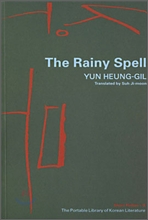
As Said argued in
Culture and Imperialism, the core of the British Empire and of cultural generally was defined by the literary form of the novel. Though the times have changed and television, movies, and the internet form the definitions of contemporary culture, I have turned to the literary novels of the second half of the twentieth century of South Korea in attempting to acclimate to my new surroundings here in South Korea. As such I found a series of translated novels, published by the Jimoondang Publishing Company of Seoul. One in this series I’ve read thus far is titled
Deep Blue Night translated by Bruce and Ju-Chan Fulton and published in this series in 2002. The piece was originally published as
Gipgo Pureun Bam by Choe In-ho in 1982. This particular work in the series appeals to me because its heroes are on a sojourn through California, from San Francisco to Los Angeles, by way of Route 1 - a trip I have taken well more than a dozen times myself.
The story captivated me by recounting my own experience of traveling from San Francisco to Southern California in a detail I haven’t felt since the first time I took the trip. Choe recounts the way the homes in Carmel hang over the beautiful sands below in a style that moves quickly and leaves no trace of the experience lacking. The tale is wrought with indulgences commonly forbidden in South Korea, such as the use of marijuana. Choe uses these indulgences to emphasize the cultural abyss between South Korea and the U.S., which I have seen and felt in this side of the Pacific. The author transforms the use of marijuana as one of the two obvious metaphors in the story. The characters Jun-ho had left his wife and children behind in Korea before coming to the states, having gotten in trouble for smoking marijuana, and had abandoned Korea for the states in search of a different life. This, coupled with the actual trip itself, outlines a journey for both characters through a couple of years of self searching.
The narrator and voice of reason, tells the story of his friend, a mirror image of himself, except that within the foreign Korean community of Los Angeles his associate and travel companion is of far greater disrepute. The story lends itself to an outline of the feelings of culture shock as transformed into a cultural nationalism itself. For the western reader, the story has several levels of utility. The story outlines at the outset the nature of Confucianism, Korean style, from solidarity to social castigation and deference based upon age, and just reads fluidly.
The expectation of arrival builds towards a conclusion each character begins to approach. Choe writes a tale of life in America as a journey not just into debauchery from the point of view of Korean values, values Choe pens into the narrator's reflections, but into cultural annihilation for the two characters. Choe almost uses the form of the novel as a manifesto of return to Korea. The arrival at Los Angeles eventually no longer represents a conclusion of their journey back to their home there but signifies the desire to return to Korea itself. Choe outlines a journey towards the comforts of ones own culture. In this respect the novel also explains much of the culture of Korean solidarity which I have encountered in my time here. Many of my Korean friends quickly jump to the protection of South Korean culture as a highly valued commodity even as western forms of culture deteriorate existing Korean cultural artifacts. This sentiment has political backing too. Haksoon Yim, the Director of the Department of Policy Development in the Korea Culture and Contents Agency, has written a book entitled
The Emergence and Change of Cultural Policy in South Korea, published by Jinhan Book of Seoul in 2003, arguing this point lucidly.
Deep Blue Night reads well and appeals to Koreans and Californians as well. It also sketches a cultural encounter between divergent world views and cultural nationalisms increasing in the frequency of their exchanges.



